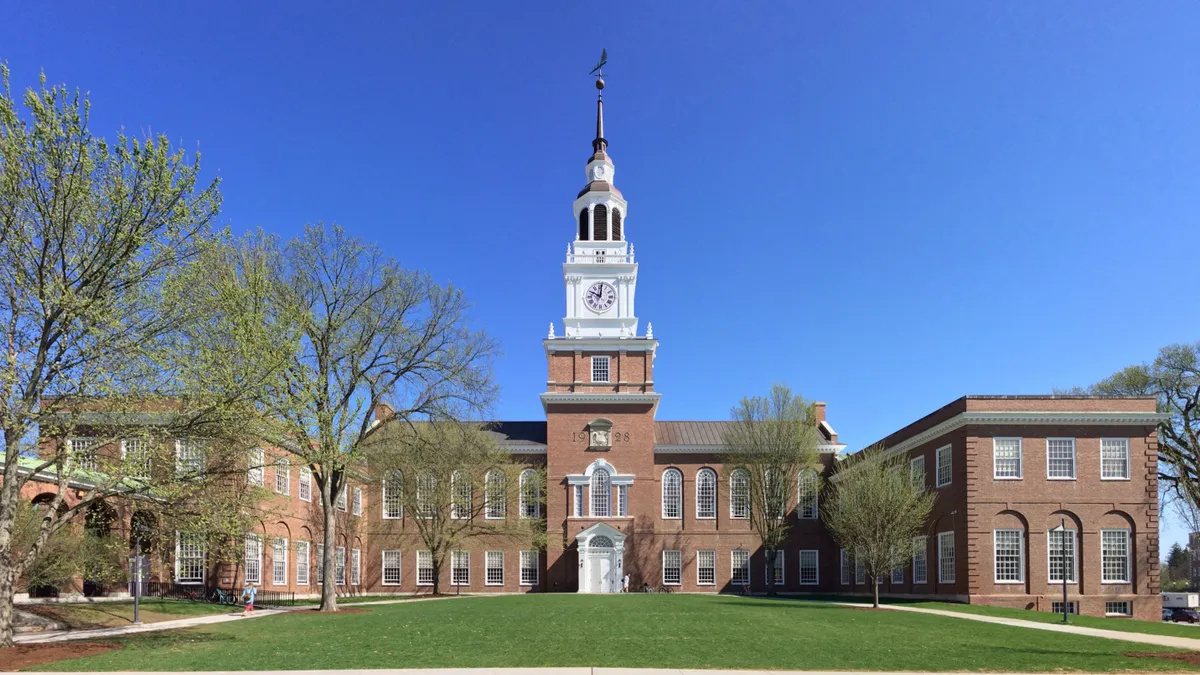Dive Brief:
- The rise in campus hate crimes and the current political climate have influenced more black students to apply to and enroll in historically black colleges and universities (HBCUs), according to research funded by Rutgers University.
- Around one-third of HBCUs have seen record enrollment numbers in the past three years, a trend that some higher education experts attribute to a surge in hate-bias incidents against black students at predominantly white institutions (PWIs).
- The researchers suggest that HBCUs do more to advertise the "safe haven" they provide to prospective students, while other institutions should try to replicate their inclusive environments.
Dive Insight:
In 2017, the nation's HBCUs saw a 2.1% year-over-year lift in their student headcounts after several years of sagging enrollment.
At the time, some officials attributed those gains to minority students seeking cover from the rise of hate-fueled incidents and speech that followed the election of President Donald Trump.
The new research supports this conclusion. Through interviews with 80 freshmen and sophomores attending HBCUs, the report's authors found that students were concerned about their safety at PWIs and wanted to escape the "blatant racism and microaggressions" they experienced during high school.
Colleges have become more of a target for hateful incidents and racist propaganda, the report notes. White supremacist flyers and other paraphernalia have been showing up more at colleges, campus hate crimes are on the rise and some schools have even witnessed deadly violence.
In 2017, Army 2nd Lt. Richard Collins III, a black Bowie State University student, was fatally stabbed near a bus stop on the University of Maryland campus just a few days before he would have graduated.
A white then-U of Maryland student is facing hate crime and murder charges in the stabbing. Prosecutors said they found racist images on his cell phone that advocated for violence, according to The Diamondback, the university's independent student newspaper.
A year after the stabbing, the number of black students who enrolled at U of Maryland dropped to an eight-year low at 7.3% of the new freshman class, The Baltimore Sun reported. College officials have said the death and other racist incidents on campus likely contributed to the decline.
Other institutions have seen similar dips in enrollment. For example, the number of black freshmen who enrolled in the University of Missouri dropped by 42% the year after the college was rocked by students protesting racism on campus.
Colleges can stand to be more proactive in responding to race-related crises on campus. Conducting ongoing assessments of the campus climate and having a robust diversity and inclusion plan are critical, explains a 2018 report from the American Council on Education (ACE).
After a crisis, ACE researchers suggest, campus leaders should acknowledge racist incidents, listen to stakeholders without getting defensive and involve campus groups in any subsequent decision-making.
The Rutgers report, meanwhile, recommends colleges look to HBCUs as a model for fostering inclusion. "Other institutions should seek to study and attempt to replicate this type of empowering institutional climate," they write.







